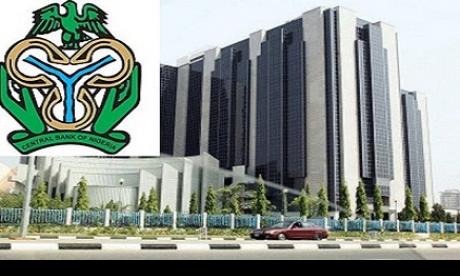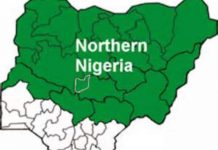The governor of the Central Bank of NIgeria (CBN), Godwin Emefiele, last week made public the plan of the apex bank for the next five years. BUKOLA IDOWU takes a look at some issues it intends to tackle in the coming years, particularly banking sector recapitalisation
Governor of the Central Bank of Nigeria (CBN), Godwin Emefiele had begun the first day of work of his second tenure as the helmsman of the apex bank in Nigeria with a promise to lay out a five year pathway in which the CBN will walk to ensure the prosperity of Nigeria.
Though his first term in office, his mantra had been job creation, economic diversity, financial stability for overall economic growth. Last week Monday, Emefiele had laid out his plan for the next five years highlighting jobs and growth as its main anchor.
At a press conference in Abuja, he read out his plan which centered around the CBN stance on the exchange rate, consumer lending, inflation, financial stability, job creation and financial inclusion, having consulted with stakeholders weeks before.
First Tenure Polices
For the past five years, the CBN had struggled to keep the naira, which had gone haywire in the early part of Emefiele’s first tenure, stable. The first two years had been particularly hard on the former Zenith Bank Managing Director as he struggled to reign in a wayward exchange rate alongside his stance of not giving scarce dollars for the importation of some items.
To say in short, he was not quite popular in the early days of his first five years. His dollar ban for these items which included rice, toothpick, palm oil, fish, iron amongst other things earned him a bad name and his reluctance to give in to pressures of devaluing the naira through a free float system made him a point of reference in almost any discussion.
Infact at a function in the heat of the battle, Emefiele had said people blamed him if there was not enough meat in their pot of soup. His remedy for the downturn in the Nigerian economy instituted by a sharp drop in global oil price was a diversification of the economy into agriculture.
Self-sufficiency was a word used liberally as the CBN pumped funding into agriculture through the Anchor Borrowers Programme and several other initiatives targeted at micro, small and medium scale enterprises. His drive towards getting funding to MSMEs in the country included the several intervention funds as well as the National Collateral Registry as well as credit bureaus.
There was also a drive to push for financial inclusion as the Shared Agent Network Facility (SANEF) was established to take banking services to the unbanked as the cashless policy continued to thrive in a technology driven industry.
Policy Outcomes
While some of the policies have been hard on the masses, some of them have turned out to be good for the economy. For instance the ABP which is currently been extended to cash crops saw a boost in the local production of rice.
According to Emefiele, the ABP has improved access to finance for over one million small holder farmers, who are leading efforts to improve cultivation of agricultural commodities, such as rice, tomatoes, fish, cotton and palm oil. He noted further that the program also enabled agro-processors and manufacturers to source their inputs from local sources, rather than relying on the importation of these items.
The establishment of the National Collateral Registry the Credit Bureaus, Emefiele said have also helped to encourage the flow of credit to SMEs by allowing them to provide movable assets as collateral in order to obtain finance from banks, relative to the previous process which required that they provide fixed assets.
So far over N400 billion worth of assets have been registered in the collateral registry by MSMEs. The activities of the credit bureaus are also reducing the risk encountered by banks in lending to businesses, as it has helped to identify credit worthy borrowers.
Asides this, the two initiatives contributed to the improvement in Nigeria’s Doing Business Scorecard in the World Bank’s 2017 Doing Business Rankings of 180 countries, as Nigeria moved up by 24 points from 169 to 144.
With over 40 percent of eligible Nigerians in 2015 lacked access to financial services, the agency banking framework had been a step towards achieving financial inclusion and recent figures by Enhancing Financial Innovation and Access (EFINA) show that the figure is on the decline with the percentage of financially included adults up to more than 50 per cent.
Also, the total volume of retail electronic payments has witnessed a threefold increase over the last five years with new financial access points being created in parts of the North East and North West as a result of measures deployed to extend financial services to the underserved in rural communities.
However, interest rates remained high and in the double digits range making it almost impossible for small businesses to access funds from the banking industry. Lending to the real sector had also declined in the process as financial institutions looked up to government instruments to shore up their profits, taking advantage of the high returns on the instruments.
An SME operator who spoke with Leadership noted that access to financing had been a major challenge to growing his business as it was hard to access the several intervention funds and “unthinkable” to take a bank loan due to the high interest rate. The business, he said was barely surviving the harsh economic environment.
The 5-Year Pathway
Emefiele in laying out the plan to be executed by the apex bank over the next five years noted that the recovery of the Nigerian economy from the recession has not resulted in a significant reduction in its unemployment rate and the country is yet to see a substantial increase in credit to the private sector by financial institutions.
While the economy has been able to pull itself out of recession, growth has be tepid, dragging along the two per cent annual growth rate range, Emefiele in his second stint as the CBN governor is looking to achieve a double digit growth by the next five years.
He also plans to see inflation which has been in the double digits since February 2016 drop to single digit, whilst accelerating the rate of employment. The five year plan also includes working with Deposit Money Banks to improve access to credit for not only small holder farmers and MSMEs but also Consumer credit and mortgage facilities for bank customers.
Inspite of the criticism which the apex bank had faced in its foreign exchange policy, it plans to continue to maintain its managed float forex regime which sees it pump millions of dollars into the economy on a weekly basis through its interventions in the interbank market as well as dollar sales to the Bureau de Change operators.
It also plans to recapitalize the banking industry in the next five years so “as to position Nigerian banks among the top 500 in the world. Banks will therefore be required to maintain higher level of capital, as well as liquid assets in order to reduce the impact of an economic crisis on the financial system.”
Recapitalisation
The Nigerian banking industry has undergone several recapitalization process in recent past with the latest being the 2010 recapitalisation done by the then CBN governor, Sanusi Lamido Sanusi. Five years before that, Professor Chukwuma Soludo had jerked up the capital base of banks from N2 billion to N25 billion for all banks.
The 2010 recapitalisation had been more tolerant as banks were given options on which path they would want to follow. During the 2010 recapitalisation exercise, the minimum paid up capital for regional banks was N10 billion while N25 billion and N50 billion was set for National and international banking licences respectively.
According to the Managing Director and Chief Executive of Cowry Assets Management Limited, Johnson Chukwu, the CBN plan for recapitalization in the industry must have been prompted by the capital base of some of the banks who have taken more risks than they can afford to.
Chukwu who is of the view that the recapitalization may not be across board of all the banking licence categories, noted that weaker banks “will be encourage or compelled to up their capital position so as to remain financially stable.
He noted further that a weakening of the naira is a factor that could erode the capital base of the banks. Compared to 2010, the value of the naira had plummeted by more than 140 per cent.The value of the naira at that time was around N150 to the dollar compared to N360 which it currently sells.
On her part, Managing Director, Chief Economist, Africa and Middle East Global Research, Standard Chartered Bank, Razia Khan noted that “as more banks switch to using the Investors and Exporters foreign exchange rate for reporting purposes, the relative undercapitalisation of banks that have been especially reliant on foreign currency lending may become more evident.
“We expect corrective action to be put in place. We expect the process of capital-raising to be gradual, and to support the eventual recovery in lending growth from the Nigerian banking sector. The extent to which policy can play a more supportive role in helping bank loan growth has yet to be demonstrated. The need to balance domestic growth considerations with relative forex stability means that the pace of easing will need to be measured.
“Until now, banks have benefited from higher yields on government securities to rebuild their profitability. But as yields ease, banks will have to be more reliant on private sector credit extension, which may require capital levels to improve even before lending can increase very meaningfully.”
Also, Professor Uche Uwaleke commenting on the recapitalization plans said Emefiele is on track, as according to him, recapitalisation of Nigerian banks was long overdue as it was last done in 2004 by Prof. Charles Soludo, the then governor of the apex bank.
Uwaleke noted that the plan would promote financial stability, adding that bigger banks were in a stronger position to form financial intermediation functions.“This plan of CBN is a welcome development because when banks have the required capital base, it will be enlisted among the big banks and the big banks have capacity to withstand shock in any economy.
“Another advantage is that it will help in the global ranking of banks, at present, no Nigeria bank is among the best 500 in the world. Such banks will be able to lend to private sectors and it will be easier for CBN to monitor and supervise,’’ he explained.







